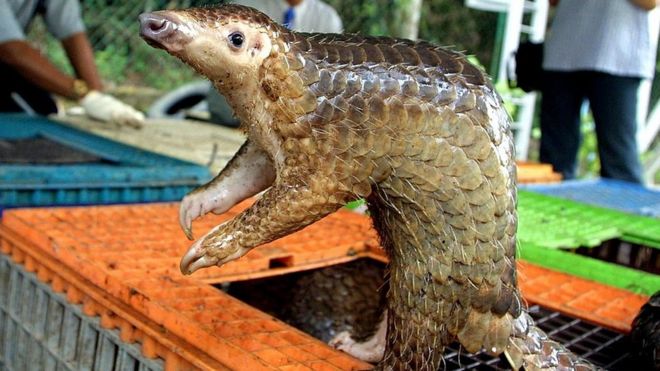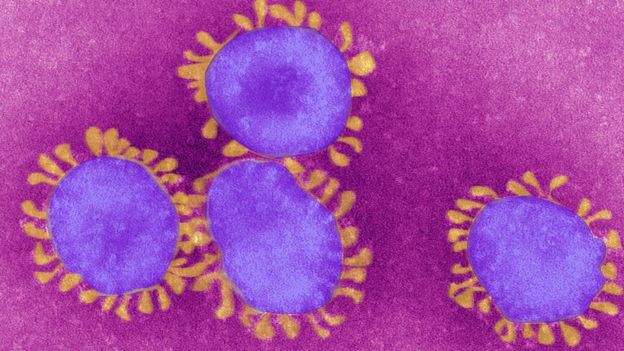 GETTY IMAGES
GETTY IMAGES
Smuggled pangolins have been found to carry viruses closely related to the one sweeping the world.
Scientists say the sale of the animals in wildlife markets should be strictly prohibited to minimise the risk of future outbreaks.
Pangolins are the most-commonly illegally trafficked mammal, used both as food and in traditional medicine.
In research published in the journal Nature, researchers say handling these animals requires "caution".
And they say further surveillance of wild pangolins is needed to understand their role in the risk of future transmission to humans.
Two groups of coronaviruses related to the virus behind the human pandemic have been identified in Malayan pangolins smuggled into China, said lead researcher Dr Tommy Lam of The University of Hong Kong.
"Although their role as the intermediate host of the SARS-CoV-2 outbreak remains to be confirmed, sale of these wild animals in wet markets should be strictly prohibited to avoid future zoonotic [animal to human] transmission," he told BBC News.
Bats also contain coronaviruses, which are closer still to the human virus, except in one key area - the part that helps the virus invade cells.
"This tells us that viruses that look pretty adapted to humans are present in wildlife," said co-researcher, Prof Edward Holmes of the University of Sydney. "Bats are certainly involved, pangolins may be, but it is very possible that other animal species are involved as well."
 GETTY IMAGES
GETTY IMAGES
Exactly how the virus jumped from a wild animal, presumably a bat, to another animal and then humans remains a mystery. The horseshoe bat and the pangolin have both been implicated, but the precise sequence of events is unknown.
Finding the virus in smuggled Malayan pangolins raised the question of where they contracted the virus, said Dr Lam. Was it from bats along the trafficking route to China or in their native habitats in Southeast Asia?
Calls to end illegal wildlife trade
Conservationists say it would be devastating if the discovery led to further persecution of the endangered mammal. The animal's scales are in high demand for use in traditional Chinese medicine, while pangolin meat is considered a delicacy.
"This is the time for the international community to pressure their governments to end illegal wildlife trade," said Elisa Panjang of Cardiff University, a pangolin conservation officer at the Danau Girang Field Centre in Malaysia.
China has moved to ban the consumption of meat from wild animals in the wake of the outbreak. Similar moves are being considered in Vietnam.
Prof Andrew Cunningham of Zoological Society of London (ZSL) said it was important not to jump to conclusions from the paper. "The source of the detected coronavirus really is unknown - it might have been a natural pangolin virus or have jumped from another species between capture and death."
And Dr Dan Challender, of the University of Oxford, said pangolins are known to host various strains of coronaviruses. "Identifying the source of SARS-CoV-2 is important to understand the emergence of the current pandemic, and in preventing similar events in the future," he said.

No comments:
Post a Comment